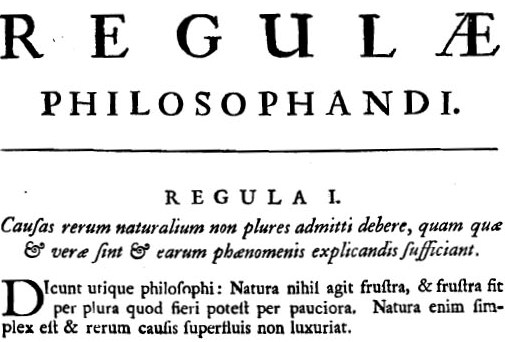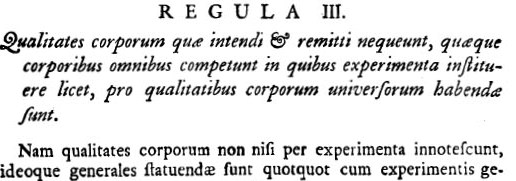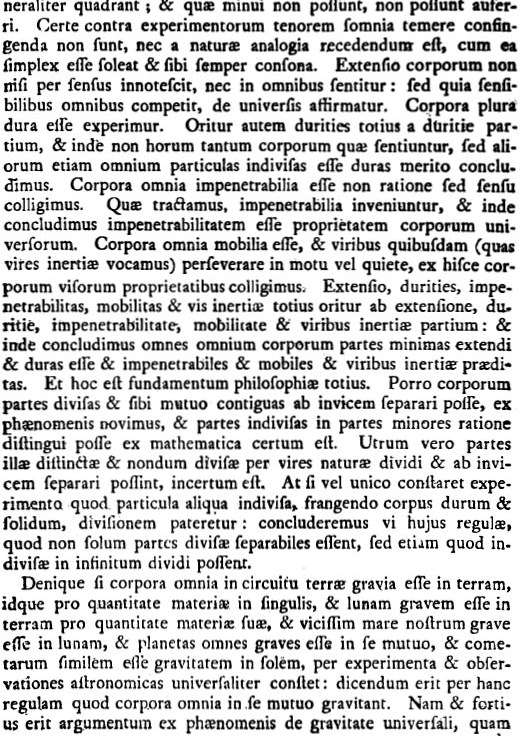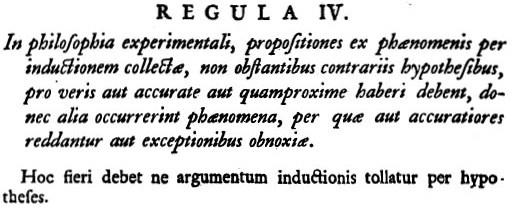Sir Isaac Newton
Philosophiae Naturalis Principia Mathematica
Definitiones
Liber Tertius: De Mundi Systemate
Preface (translation by Andrew Motte)
Regulae Philosophandi (this page)
Characteristics of Newton’s Latin
Note: the laws are written in indirect statement.

Notes:
line 2: phaenomenīs: phenomena; appearances (in the sky or air)
explicandis: case?
sufficiant: are sufficient; suffice
line 3: utique: certainly; at any rate
“natura nihil agit frustra” cf. Aristotle (Politics I.2)
“Frustra fit per plura quod potest fieri per pauciora” a version of “Ockham’s razor” (William Ockham, c. 1285-?1349, English philosopher). Another version was: “Pluralitas non est ponenda sine necessitate”
Cf. also Copernicus I.x lines 52-55. For a reaction against a multitude of seemingly unnecessary rules, see also Descartes, Dissertatio II.ii lines 1-10.

Notes:
line 1: effectuum naturalium: with “eaedem . . . causae” translate with assignandae sunt.
line 2: quatenus: as much as; to the degree that (cf. Lex I line 8 above)
line 3: uti [causa] respirationis



Notes:
line 1: intendi: to be stretched, extended, become greater in degree
remitti: to be relaxed, diminished, reduced in degree [Those which cannot be diminished cannot be completely taken away]. These relate to the medieval concept of “latitude of forms” of qualities which could be quantified, and thus undergo “intension” or “remission” by degrees.
nequeunt: are not able
quae-que
line 2: competunt: belong (+ what case? why?)
instituere: to conduct; (within reach)
The five universal qualities found in the first paragraph are: extensio, durities, impenetrabilitas, mobilitas, and vis inertiae.
(2nd paragraph) gravia esse: are heavy, i.e. gravitate
line 2: pro quantitate materiae: in proportion to the mass
line 3: vicissim: in turn; on the other hand
line 9 im-penetra-bili-tate: one of the universal qualities
utique: at any rate, certainly
line 11: attamen: but yet
line 12: per vim insitam: by inherent force [see Definitio III]

Notes:
line 2: non obstantibus contrariis hypothesibus: ablative absolute
notwithstanding contrary hypotheses; with contrary hypotheses not hindering
line 3: quamproxime: as nearly as possible
*haberi: be regarded, considered
line 4: [propositiones] accuratiores
line 5: obnoxiae (+ dat.): liable to; subject to
line 6: tollatur: be destroyed, done away with
Phaenomena